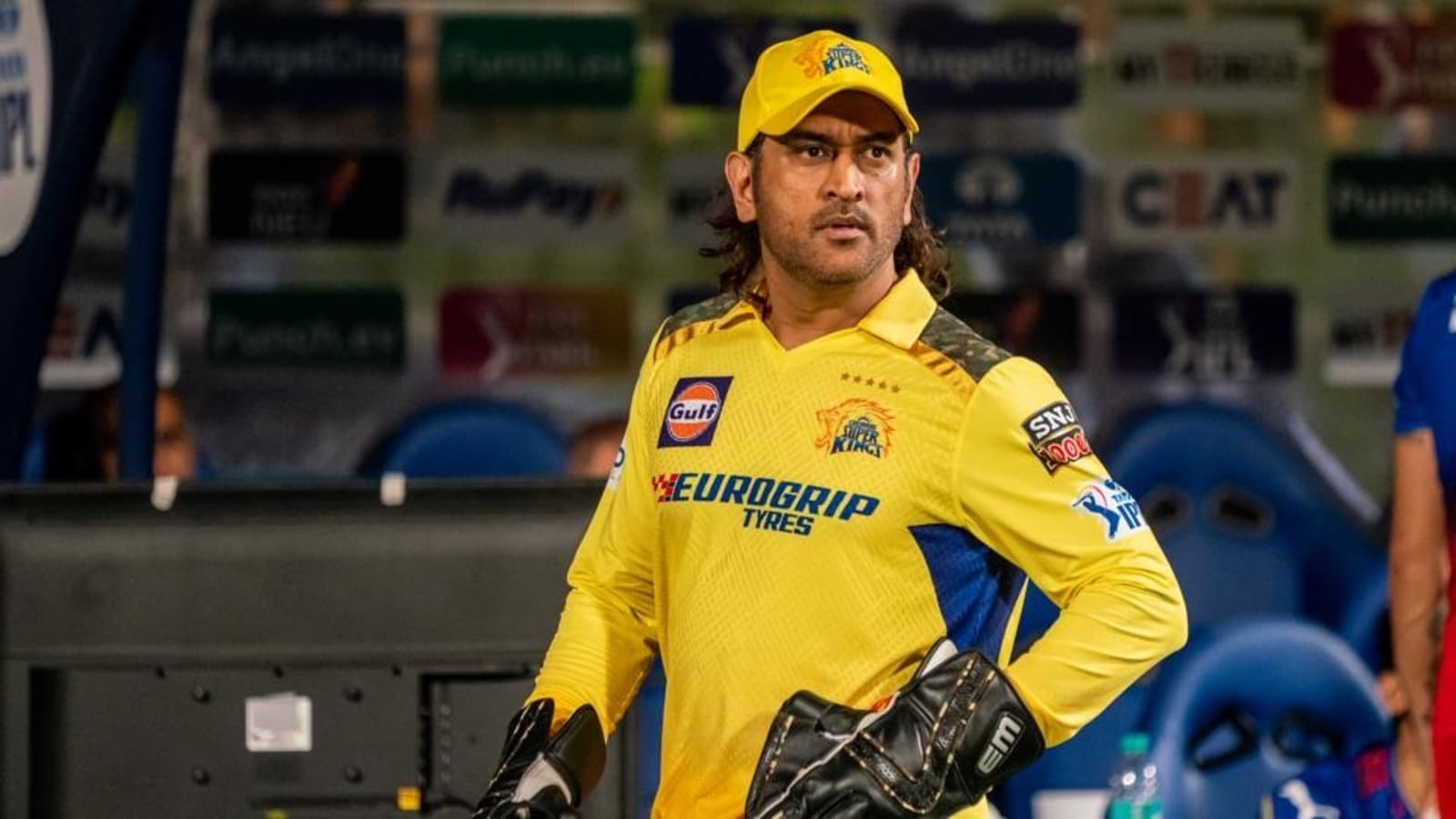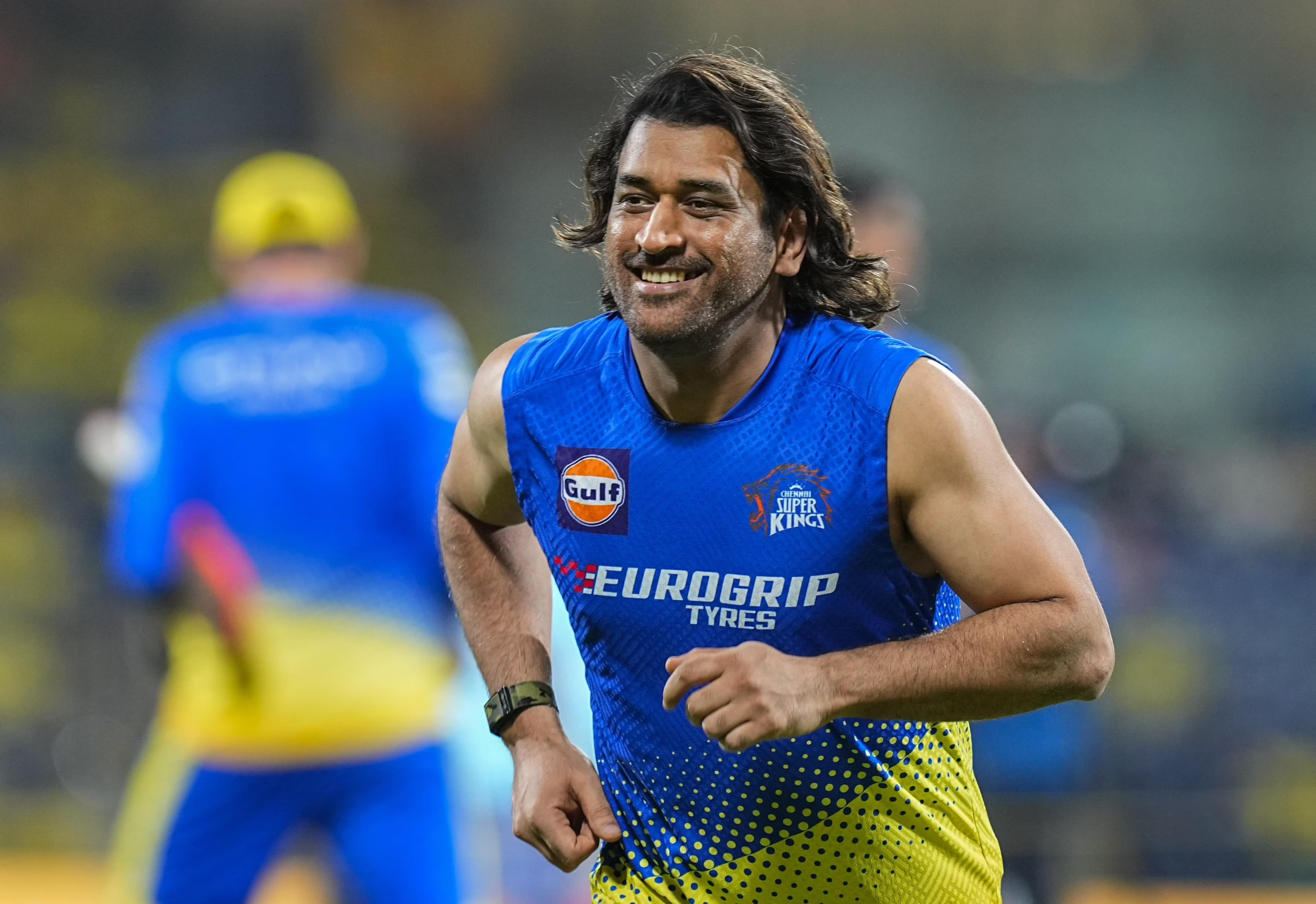Mahendra Singh Dhoni, often referred to as Captain Cool, is one of the most iconic cricketers India has ever produced. Known for his calm demeanor, exceptional leadership skills, and ability to finish matches under pressure, Dhoni transformed Indian cricket with his tactical brilliance and aggressive batting.
From leading India to three major ICC trophies to becoming the most successful captain in IPL history, his journey is nothing short of extraordinary. Dhoni’s rise from a small-town boy in Ranchi to an international cricketing legend is an inspiration for millions. His legacy goes beyond the trophies and records—he instilled self-belief in an entire generation of Indian cricketers.

Early Life and Background
Born on July 7, 1981, in Ranchi, Jharkhand (then Bihar), MS Dhoni grew up in a humble family. His father, Pan Singh, worked for MECON, while his mother, Devaki Devi, was a homemaker. He has two siblings—an elder brother, Narendra Singh Dhoni, and a sister, Jayanti Gupta. Unlike most cricketers who come from well-established cricket academies, Dhoni’s journey was different. Initially, he was more interested in football and was a goalkeeper for his school’s football team. His sports teacher noticed his reflexes and asked him to try his hand at wicketkeeping. That one suggestion changed his life. Dhoni quickly adapted to cricket and became the primary wicketkeeper for his school team.

He studied at DAV Jawahar Vidya Mandir in Ranchi, where he continued excelling in cricket while managing his studies. His talent was evident from a young age, and he soon started playing for local clubs and district teams. Unlike many young cricketers who receive early recognition, Dhoni had to struggle for years in domestic cricket before getting his breakthrough.
Domestic Career and Rise to Fame
Dhoni made his debut in domestic cricket for Bihar in 1999-2000 at the age of 18. His performances were promising, but he remained unnoticed by national selectors for several years. When Jharkhand became a separate state, he started playing for them and finally caught the attention of cricketing scouts. However, his journey wasn’t easy. To support himself financially, Dhoni worked as a Train Ticket Examiner (TTE) at Kharagpur Railway Station for nearly two years. But his passion for cricket never faded, and he continued playing at the domestic level.
His big break came in 2004, when he was selected for the India A team for a tour of Zimbabwe and Kenya. He performed exceptionally well, scoring two centuries against Pakistan A. His ability to play aggressive cricket and his exceptional wicketkeeping skills impressed the selectors, and he soon received a call-up to the Indian national team.
International Debut and Initial Struggles
MS Dhoni made his ODI debut against Bangladesh on December 23, 2004. Unfortunately, it was an underwhelming start as he got out for a duck. However, the selectors kept faith in him, and he got another chance in the series against Pakistan in 2005. That was when the world witnessed his brilliance. Dhoni scored a sensational 148 runs off 123 balls in Visakhapatnam, announcing his arrival on the big stage.
His aggressive stroke play, fearless attitude, and ability to play match-winning innings made him an instant favorite among fans. Soon, he cemented his place as India’s first-choice wicketkeeper-batsman. Over the next few years, he delivered consistent performances, including his famous 183 against Sri Lanka in 2005*, which remains the highest individual score by a wicketkeeper in ODIs.
Rise to Captaincy and India’s Golden Era
In 2007, Dhoni was appointed as the captain of the Indian team for the inaugural ICC T20 World Cup in South Africa. With a young and inexperienced team, India wasn’t considered favorites. However, under Dhoni’s leadership, the team played fearless cricket and won the trophy, defeating Pakistan in a thrilling final. This victory changed Indian cricket forever. Dhoni’s calmness under pressure, strategic mindset, and ability to back young players made him the ideal leader for the team.
Following this success, he was made the full-time captain in all formats. India’s golden era under Dhoni saw the team achieve historic victories, including winning the 2008 CB Series in Australia, the 2010 and 2016 Asia Cups, and most importantly, the 2011 ICC Cricket World Cup. The 2011 World Cup final remains one of the most memorable moments in Indian cricket history. Chasing 275 against Sri Lanka, India was under pressure, but Dhoni promoted himself in the batting order and played an unforgettable knock of 91 off 79 balls*, finishing the match with a six—an iconic moment that still gives cricket fans goosebumps.
His leadership continued to shine in Test cricket, where he led India to the No.1 Test ranking for the first time in 2009. In 2013, he added another feather to his cap by guiding India to victory in the ICC Champions Trophy, making him the only captain in history to win all three ICC trophies.
Records and Achievements
MS Dhoni’s cricketing career is filled with extraordinary records. In ODIs, he played 350 matches, scoring 10,773 runs at an average of 50.57, with 10 centuries and 73 half-centuries. In Test cricket, he played 90 matches, scoring 4,876 runs with 6 centuries. In T20 Internationals, he played 98 matches, scoring 1,617 runs. He holds the record for the most international stumpings (195) and is widely regarded as one of the fastest wicketkeepers in the world.
In the Indian Premier League (IPL), Dhoni became the face of Chennai Super Kings (CSK), leading them to five IPL titles (2010, 2011, 2018, 2021, 2023). His captaincy in the IPL is legendary, and he continues to be a key figure in the tournament.
Retirement and Legacy
In December 2014, Dhoni retired from Test cricket, shocking fans worldwide. He continued playing in limited-overs cricket and led India until 2017, when he stepped down as captain. On August 15, 2020, Dhoni officially announced his retirement from international cricket, ending an era of dominance.
Even after retiring, he remains involved in cricket through IPL and other ventures. He has also been honored with the Padma Bhushan, Padma Shri, and Rajiv Gandhi Khel Ratna awards for his contributions to Indian sports. Additionally, Dhoni serves as an Honorary Lieutenant Colonel in the Indian Army, a testament to his love for the country.
Conclusion
MS Dhoni is more than just a cricketer; he is a phenomenon. His impact on Indian cricket goes beyond statistics and trophies—he changed the way the game was played in India. He brought in a winning mentality, backed young players, and inspired millions with his never-give-up attitude. Even today, fans admire him not only for his cricketing achievements but also for his humility and leadership. Whether it was finishing matches with a six, guiding bowlers from behind the stumps, or leading from the front, Dhoni’s contributions will be remembered forever. His legacy as India’s greatest captain and most beloved cricketer remains intact, and he will continue to be an inspiration for generations to come.
